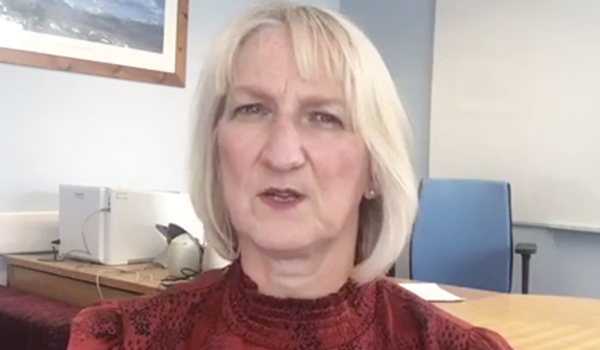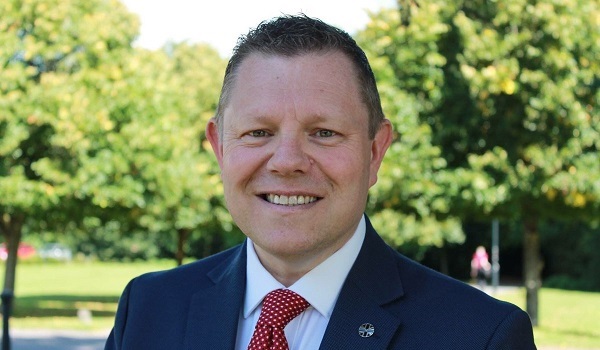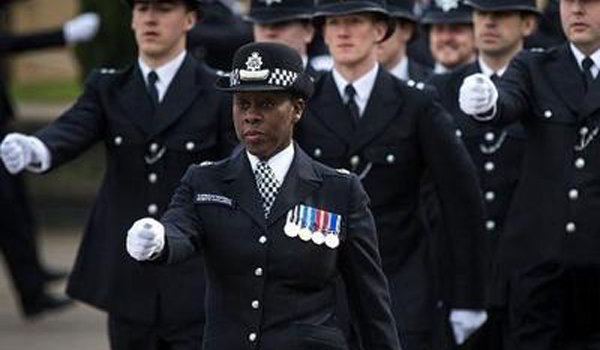Effective working relationship between the PSNI and Police Ombudsman’s Office ‘critical’ to disclosure arrangements
The Chief Inspector of Criminal Justice in Northern Ireland has called on the Police Service of Northern Ireland (PSNI) and the Office of the Police Ombudsman for Northern Ireland (OPONI) to “work hard together” to strengthen trust and repair damage to public confidence.
It follows the PSNI’s failure to disclose sensitive information linked to an historical case in late 2018.
Jacqui Durkin said it was critical effective working arrangements were in place between the two organisations, as she published the findings of a Criminal Justice Inspection Northern Ireland (CJI) review today (April 2) into how the police disclose sensitive information to the Police Ombudsman’s office in Troubles-related cases.
“Inspectors found substantial work was already underway within the PSNI to address issues that contributed to the initial police failure to provide all relevant material to the Ombudsman’s office, when fieldwork for this review began in spring 2019,” said Ms Durkin.
“Staffing increases and the transfer of information from outdated computer systems to modern IT platforms with better search capability are welcome developments. However, further work is needed by both organisations to establish more effective systems and better processes.”
“The current Memorandum of Understanding (MoU) governing the working relationship between the PSNI and OPONI should be revised and I understand this is being progressed. The OPONI and PSNI must ensure their MoU provides clarity on their respective obligations and enables an effective working relationship.
“I have recommended the procedure for requesting and responding to disclosure is examined within 12 months to allow the PSNI to better plan for, and resource, OPONI historic investigations.”
Ms Durkin said that practical steps were also needed at an operational level.
She said it was clear from the outset that both the chief constable and Police Ombudsman believed that the failure in a particular legacy investigation was as a result of human error and not a deliberate act or omission.
“Understandably, this was small comfort to the families of the victims of the atrocity and evoked a strong reaction from the families and their legal and political representatives. It also brought the PSNI, the Northern Ireland Policing Board (NIPB) and the OPONI into a controversy over issues that they were neither designed nor resourced to manage,” she added.
“The PSNI former chief constable fully accepted the criticality of the situation and had already commissioned an internal review and initiated a programme, including investment in IT systems to deliver improvements. By the time this review commenced, substantial work was already underway and the programme was clearly being prioritised as urgent to the clear detriment of other IT projects.
The PSNI’s OPONI Liaison Office was identified as the primary contact point for the OPONI, with officers within the Liaison Office carrying out searches for sensitive material following an OPONI request.
“While all Liaison Office staff had previous experience working in the PSNI’s Crime Operations Department, they did not have a thorough understanding of what the Liaison Office role involved prior to their appointment,” said Ms Durkin.
“At the time of fieldwork, no role-specific training or guidance was provided to officers on appointment to the Liaison Office concerning searching for the required material, and each person had a workload of 15 to 20 OPONI cases.”
She said following the inspection fieldwork, Liaison Office staffing levels had increased and a search guide has been developed to assist with and standardise the search process.
“However, I recommend the PSNI reviews its internal processes for appointing and training Liaison Office staff to perform this role and that staffing levels should be reviewed within 12 months against the current and potential future demand,” added Ms Durkin.
She said the police needed to carry out a full audit of its historical records to establish what material it had and where it was located, as the review found there was no central inventory of hard copy historical material. This was particularly important as material at risk of deterioration needed to be identified.
Inspectors also made recommendations where improvements were required within the OPONI.
“I have recommended the OPONI procedures for viewing and reporting the material disclosed by the PSNI should be reviewed to provide corporate assurance all material relevant to the investigation was identified and captured.
Ms Durkin also said work needed to be done to clarify the position around providing OPONI staff with unfettered access to PSNI legacy systems.
“It is widely recognised that responding to disclosure requirements for legacy investigations and related legal actions is a significant draw on PSNI resources,” she added.
“I am reassured that the ongoing work within the PSNI, together with the implementation of these strategic and operational recommendations, will secure many of the improvements that are required. The expertise and systems that are being developed are designed to ensure a more consistent quality of research and depth of response.”
Ms Durkin added: “I have thought carefully about publishing this report today given the current public health crisis and challenges for everyone, including the PSNI and the OPONI. However, it is important to make the findings of this independent review public in a timely manner and maintain a focus on the future. Restoring and maintaining public trust is a serious concern and challenge.
“Trust, respect and confidence are won and lost by actions, behaviours and attitudes displayed on a daily basis as much as the strategic intent. Building and sustaining an effective working relationship should be a key strategic priority for the chief constable and the Police Ombudsman.”
The review makes two strategic recommendations: that the PSNI should urgently put in place an effective system to provide corporate assurance that all material provided by the Liaison Office was that required in the original request from the OPONI; and the disclosure and discovery regimes were effective and consistent across all departments.
The second strategic recommendation is that, within one year of the publication of this review, the PSNI and the OPONI should revisit and revise the MoU to:
- Re-examine procedures for requesting and responding to requests for disclosure to allow the PSNI to effectively resource the OPONI historical investigations;
- Take account of the issues raised in this Review, and the developments in the PSNI to introduce the standardised model; and
- Ensure that the MoU satisfied each organisations’ obligations and enabled productive, effective and professional working relationships.
The Inspectorate undertook this review following a request made by the Department of Justice to the then Chief Inspector of Criminal Justice in February 2019. Work related to the review was initially completed that year, but after the PSNI notified the OPONI that it had identified additional undisclosed material in October 2019, publication of the CJI review was deferred until the Chief Inspector could obtain further information from the OPONI and satisfy themselves that further fieldwork was not required.
Deputy Chief Constable Mark Hamilton said they “welcomed” the publication of today’s review. “As observed by the CJI report, from the outset PSNI recognised the impact of the failure to disclose information to the Ombudsman on both the families and the wider public’s confidence in policing,” he said.
“This failure was not due to the actions of any individual but was an organisational and systems failure and I unreservedly apologise again to the families for this. As soon as the issue came to police attention, we commissioned urgent work to address it, and over the course of the last year we have worked closely with OPONI and fully cooperated with the Criminal Justice Inspectorate to do so.
“We accept in full the recommendations for PSNI within the report. Both the PSNI and OPONI have, and are committed to working together, to continually improve our systems and processes for disclosure so that we can provide families who have lost loved ones with as much information as possible on their deaths. Much of the work on the recommendations from the report is already well progressed and, in some areas, has already been completed. As part of this work, PSNI have for example introduced a new standardised search guide to deliver a more comprehensive and consistent approach, which provides a higher level of assurance for OPONI. We believe this work has significantly reduced the risk of such an error occurring again.
“The Inspectorate are, however, right when they say that the risk of a further error cannot be fully eradicated and that is why, along with OPONI, we must continue to critically evaluate our systems and processes to limit the potential for any recurrence.
“I am confident that the ongoing work on updating the Memorandum of Understanding between PSNI and OPONI will provide clarity and enable the effective working relationship as recommended by CJI and significant progress has been made on this already.”







